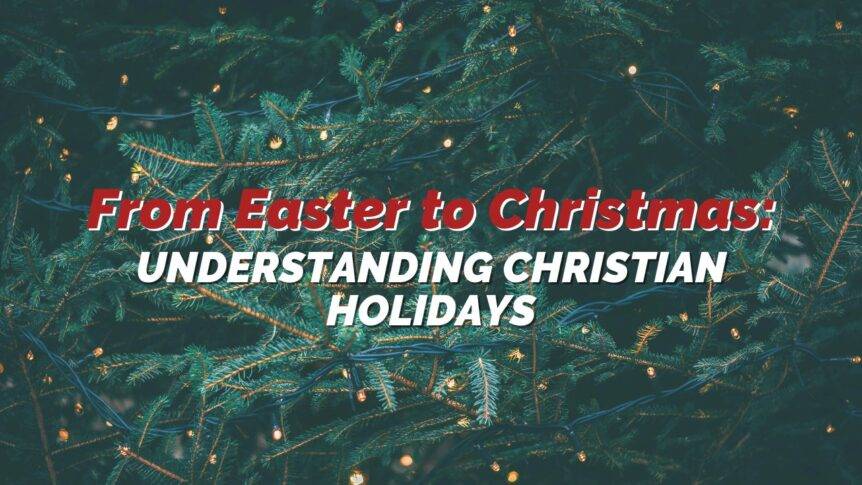With the holidays coming up, many questions are sure to follow. As Christians, there are so many holidays that we celebrate that have some fascinating origins. But what about holidays like Halloween? Should we even celebrate it? Do all Christians celebrate Ash Wednesday and Lent? Which Christian holidays should we celebrate and give our time to?
These are all questions we want to answer and hopefully give more clarity. While the Bible doesn’t explicitly say yes or no to certain holidays, it’s important to know what is expected of us as believers. Even so, it’s your decision whether to celebrate holidays as you see fit! Want to dress up for Halloween and eat candy? Go right ahead!
At the end of the day, the decision to celebrate any holiday in the Christian church is completely up to you, your pastor, and your church. Let’s dive into the history of Christian holidays!
Estimated reading time: 14 minutes
Table of contents
Origins of Celebrated Holidays
When you think of “Christian Holidays”, what comes to mind? Easter, Christmas, perhaps Passover? A majority of major holidays are rooted in religious tradition, and we’ll cover those down below! Find out what Christian theology has to say and why, and also why it should matter to you.
Easter

Lent, the period of 40 days before Easter, is traditionally observed by acts of penance and fasting. Easter is immediately preceded by Holy Week, which includes Maundy Thursday, the commemoration of Jesus’ Last Supper with his disciples; Good Friday, the day of his Crucifixion; and Holy Saturday, the transition between Crucifixion and Resurrection.
Easter celebrates the Resurrection of Jesus Christ, on the third day after his Crucifixion. The earliest recorded observance of an Easter celebration comes from the 2nd century, though the commemoration of Jesus’ Resurrection might’ve occurred earlier.
In 325 AD, The Council of Nicaea decreed that Easter should be observed on the first Sunday following the first full moon after the spring equinox (March 21). Easter, therefore, can fall on any Sunday between March 22 and April 25.
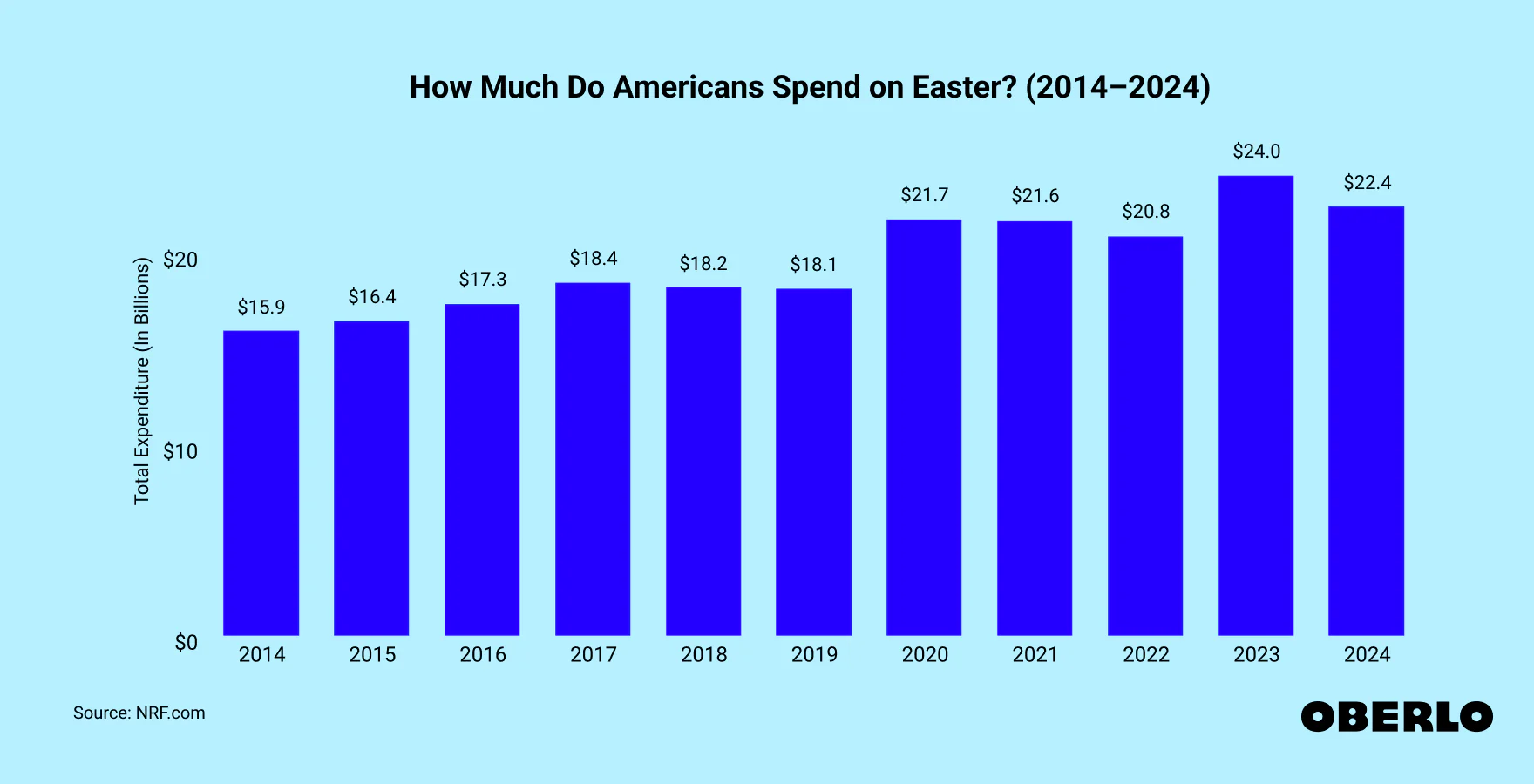
Along with Christmas, Easter is one of the most celebrated Christian holidays as it marks an important time in history. It’s a time for reflection as well, and a time to be thankful for all God has sacrificed for us. Easter is ultimately the greatest celebration that Jesus Christ has risen!
Christmas / December 25th
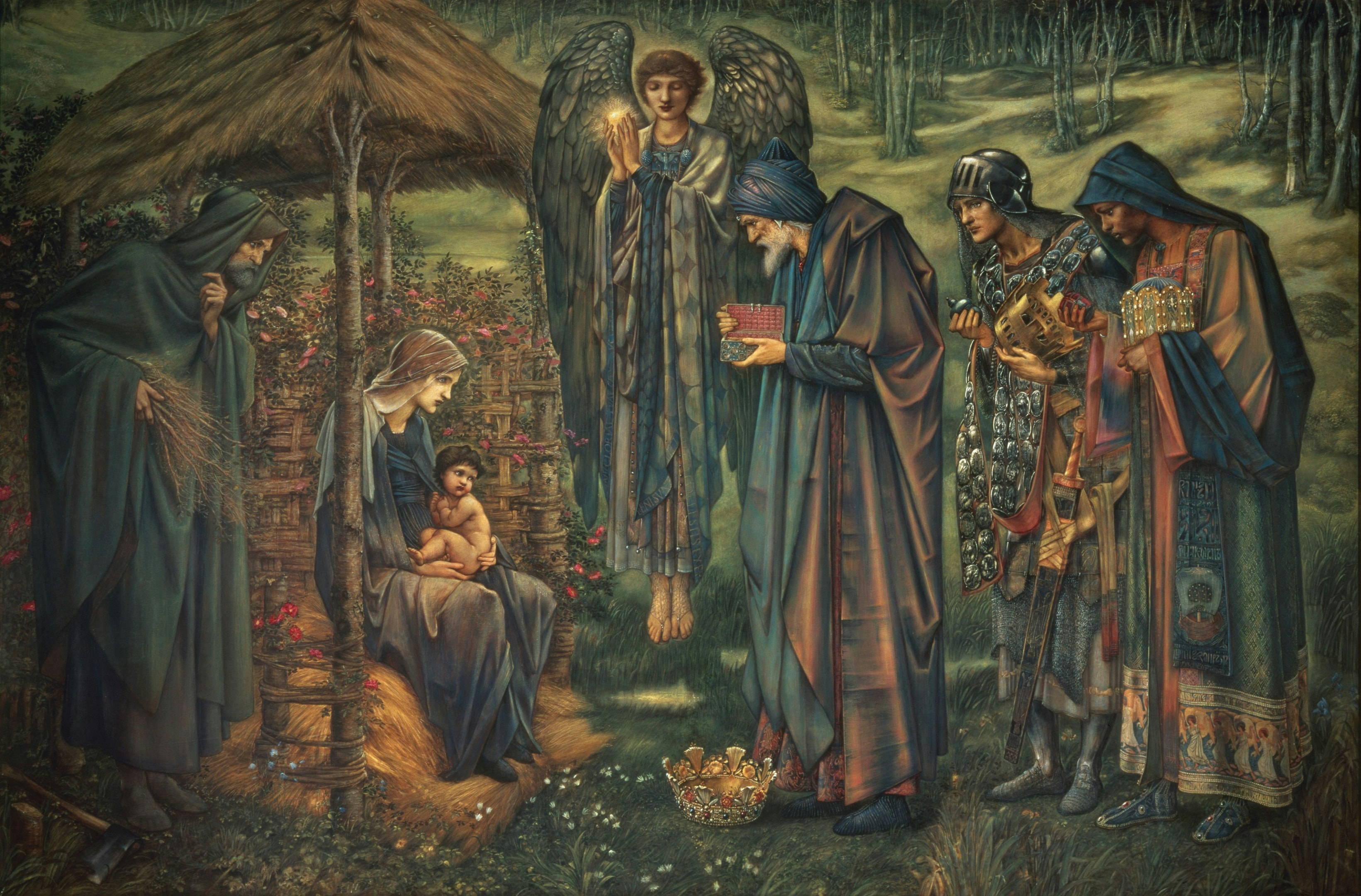
Christmas is a religious holiday celebrating the birth of baby Jesus. One of the most widely celebrated holidays in the Western world, Christmas involves family gatherings, eating, lights, music, gift-giving, and, of course, waiting for Santa Claus. Christmas Eve is also celebrated during this time as another time to gather together as a family as we wait for Christmas Day.
In the fourth century, church officials decided to institute the birth of Jesus as a holiday. The Bible does not mention the date of his birth (a fact Puritans later pointed out to deny the legitimacy of the celebration).
Some evidence suggests that his birth may have occurred in the spring, however Pope Julius I chose December 25 to celebrate. It’s commonly believed that the church chose this date to adopt and absorb the traditions of the pagan Saturnalia festival. Originally called the Feast of the Nativity, the custom spread to Egypt by 432 and to England by the end of the sixth century.
By holding Christmas at the same time as traditional winter solstice festivals, church leaders increased the chances that Christmas would be popularly embraced, but gave up the ability to dictate how it was celebrated. By the Middle Ages, Christianity had pretty much replaced pagan religion.
For two millennia now, people around the world have been observing it with traditions and practices that are both religious and secular in nature. Christians celebrate Christmas Day as the anniversary of the birth of Jesus of Nazareth.
Halloween / October 31st

The origins of Halloween are often said to be satanic, as we’re told in certain cartoons that portray ancient druids going around asking for children to sacrifice to the lord of darkness, Samhain. We’re told that Halloween is the “devil’s day” and that it cannot be celebrated by Christians. Some Christians will turn to the words of supposed ex-Satanists and self-proclaimed Satanists who make such statements, and they’re accepted without question.
Many Christians view Halloween as a day rooted in pagan celebration and the occult. They believe that participating goes against the beliefs of God and Christianity; thinking that celebrating Halloween could open doors to spiritual darkness. The actual origins of Halloween are rooted in the Church, not any fictitious religious pagan feast from ancient times.
After a few centuries of Christian martyrs under pagan Roman emperors, various churches began celebrating a day to remember and pray for them, similar to Hebrews 11’s roll-call of the departed faithful. The Syrian Church celebrated the martyrs day during Pascha week; the Greek Church similarly celebrated this the first Sunday after Pentecost; the Irish Celtic Church chose April 20th, and the Anglo-Franco-Germanic churches picked November 1st. As you can see, many religious figures are celebrated during this time.
In today’s time, Halloween focuses on dressing up as your favorite movie character or superhero, while getting a bucket full of candy. While we should remain cautious of the “darker side” of Halloween, the main objective is not one that I find particularly harmful. As with any holiday, use your own discretion to determine if the holiday is one you want to celebrate.
All Saints’ Day / November 1
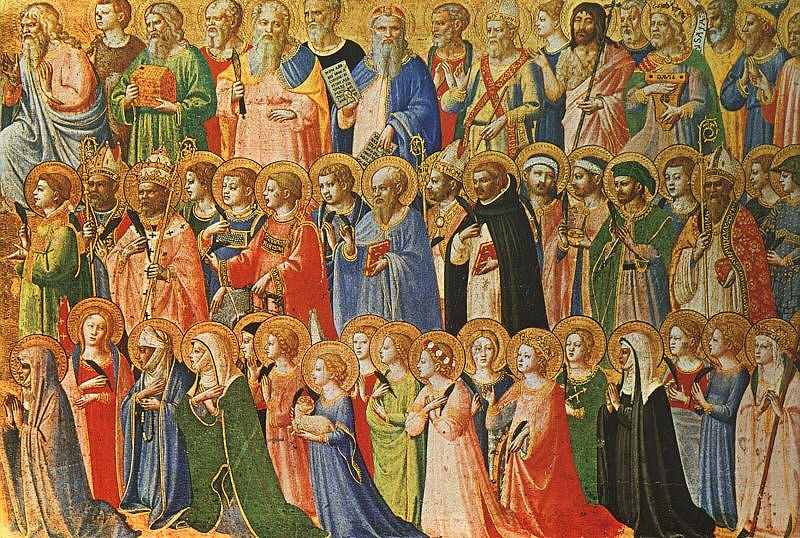
All Saints’ Day is a festival which recognizes all the saints, known and unknown. Many churches celebrate this holiday on the closest Sunday. This day was called All Hallows’ Day, and the preceding eve was All Hallows’ Eve, which led to Halloween, now a widespread cultural observance.
Catholics observe All Saints Day by participating in Mass, as it is a holy day of obligation, and in honoring all the saints in a special way at that liturgy. Many Catholics also take part in prayers, reflections, and celebratory meals, as well as visit the graves of loved ones to remember and pray for those who have passed away.
Other Christian Holidays/Observances
Passover
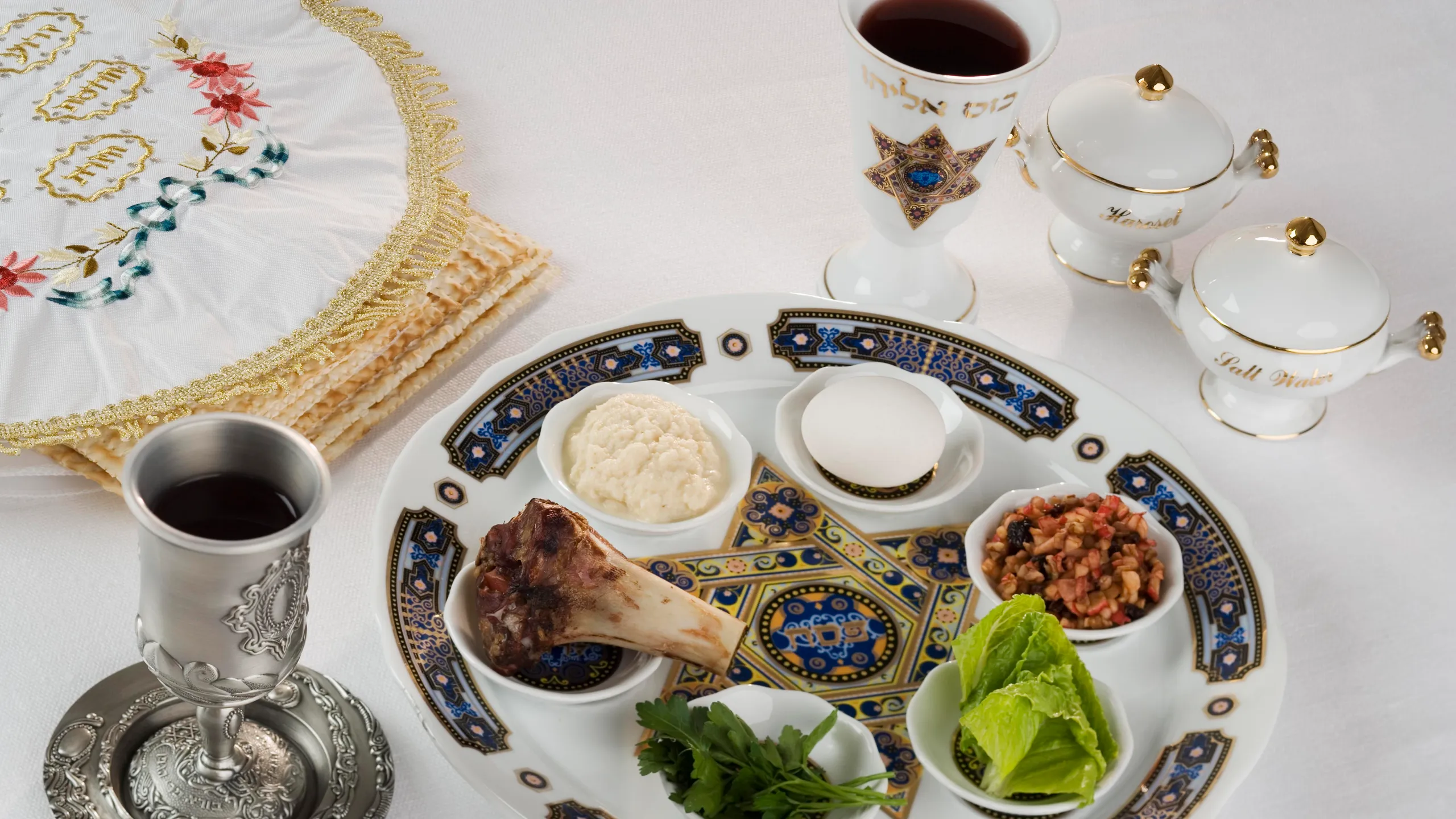
The eight-day Jewish holiday is celebrated in the early spring, from the 15th through the 22nd of the Hebrew month of Nissan, April 12 – 20, 2025. Passover (Pesach) commemorates the emancipation of the Israelites from slavery in ancient Egypt. Pesach is observed by avoiding leaven, and highlighted by the Seder meals that include four cups of wine, eating matzah and bitter herbs, and retelling the story of the Exodus.
In Hebrew it is known as Pesach (which means “to pass over”) because God passed over the Jewish home while killing the Egyptian firstborn on the very first Passover eve.
Ash Wednesday
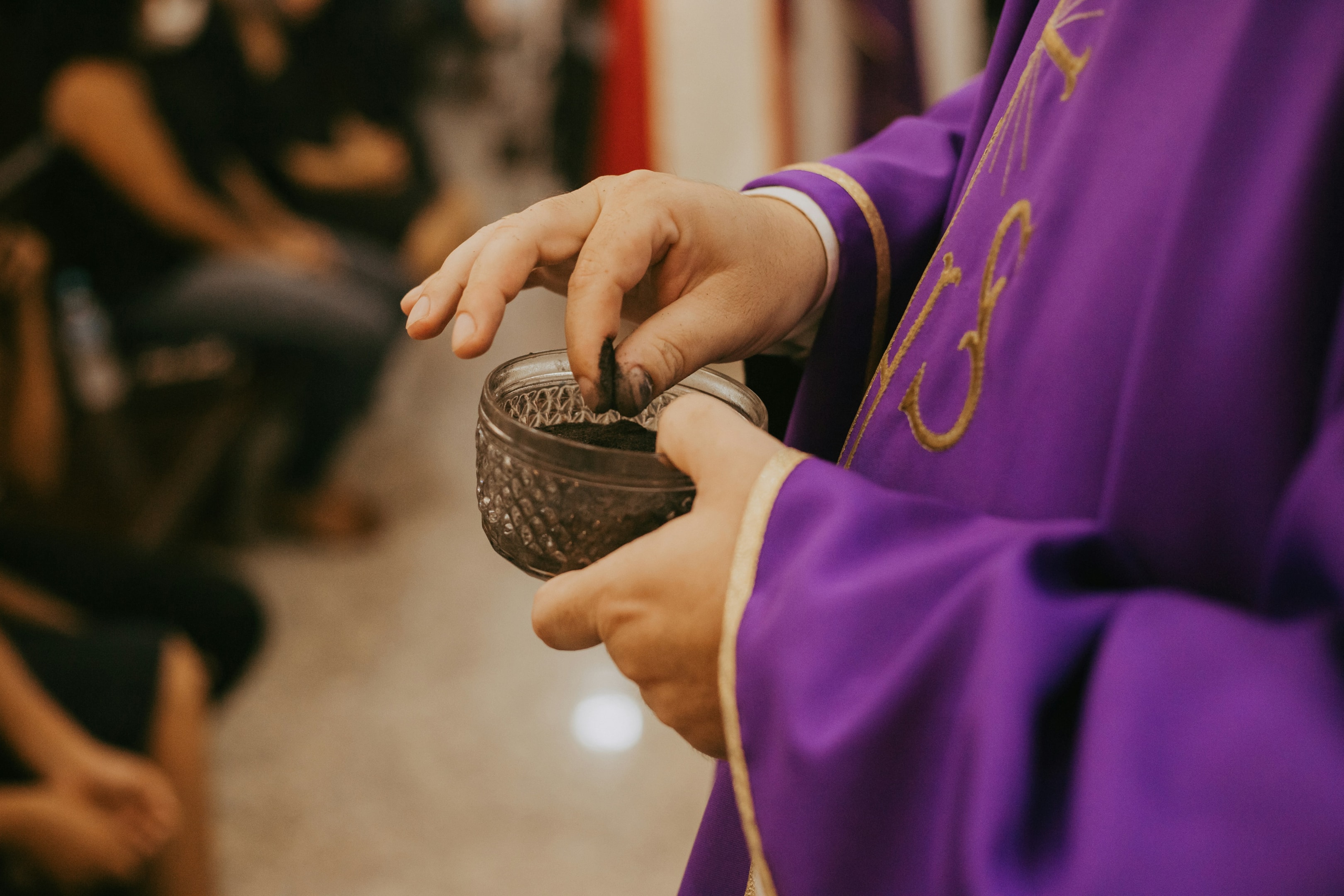
Ash Wednesday is deeply rooted in history, and it’s past can be found all throughout the Old Testament. The Early Christians used ashes to show repentance as well, but not just on Ash Wednesday! After going to confession, it was common for the priest to give the person ashes on their forehead. Catholics have been receiving ashes on Ash Wednesday since the time of St. Gregory the Great. In 1091, Pope Urban II encouraged the entire Church to use ashes on Ash Wednesday.
- “Therefore I disown what I have said, and repent in dust and ashes.” (Job 42:6)
- “Daughter of my people, dress in sackcloth, roll in the ashes.” (Jeremiah 6:26)
- “I turned to the Lord God, to seek help, in prayer and petition, with fasting, sackcloth, and ashes.” (Daniel 9:3)
- “When the news reached the king of Nineveh, he rose from his throne, laid aside his robe, covered himself with sackcloth, and sat in ashes. Then he had this proclaimed throughout Nineveh: “By decree of the king and his nobles, no man or beast, no cattle or sheep, shall taste anything; they shall not eat, nor shall they drink water. Man and beast alike must be covered with sackcloth and call loudly to God; they all must turn from their evil way and from the violence of their hands.” (Jonah 3: 6-8)
Lent – February/March/April
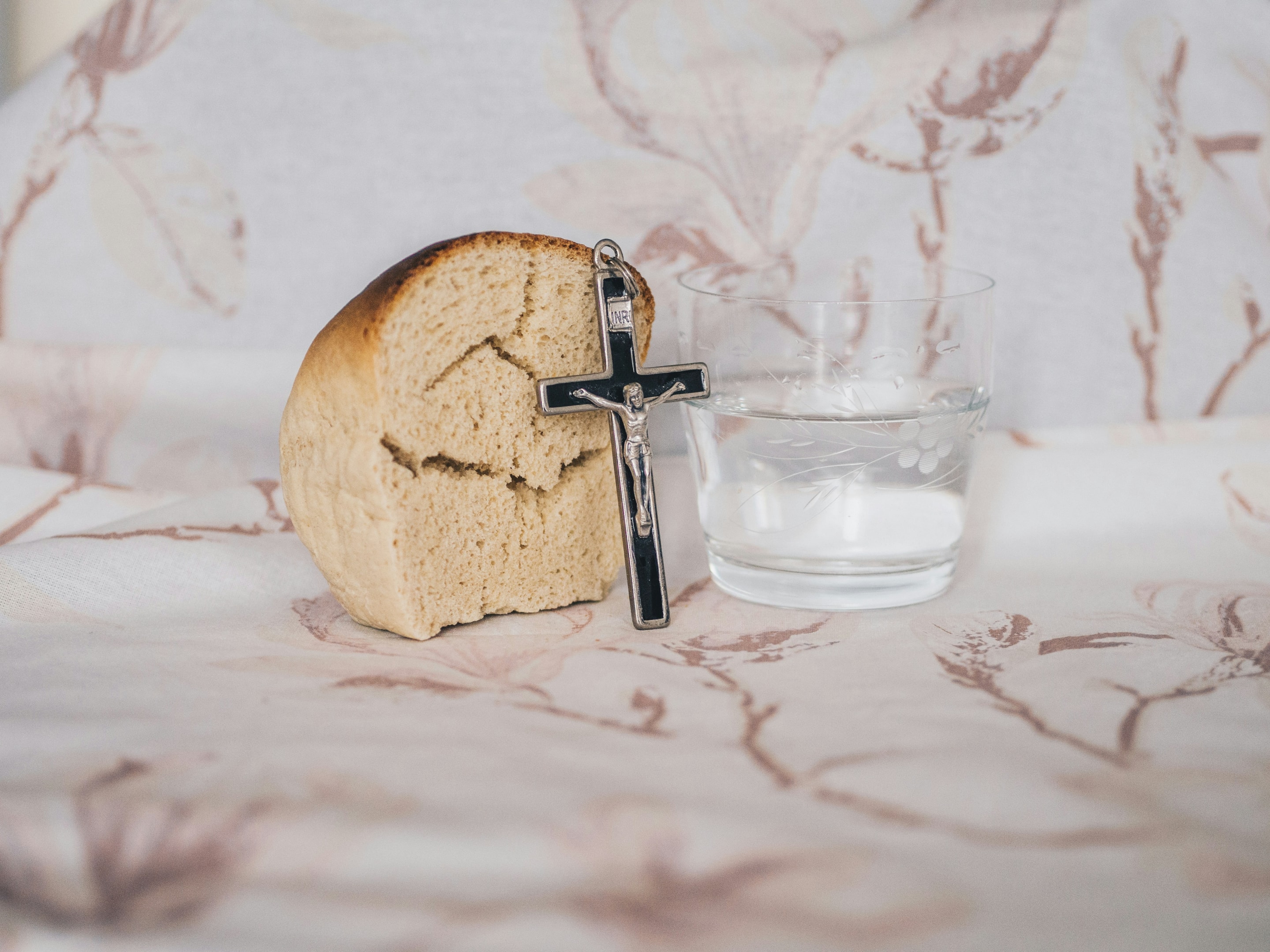
Lent is a 40-day season of prayer, fasting, and almsgiving that begins on Ash Wednesday and ends at sundown on the Holy Thursday. It’s a period of preparation to celebrate the Lord’s Resurrection at Easter. During Lent, it’s a time to seek the Lord in prayer by reading Sacred Scripture; serve by giving alms; and practice self-control through fasting.
Called not only to abstain from luxuries during Lent, but to a true inner conversion of heart as one might seek to follow Christ’s will more faithfully. Recall the waters of baptism in which one was also baptized into Christ’s death, died to sin and evil, and began a new life in Christ.
Many know of the tradition of abstaining from meat on Fridays during Lent, but it’s also a time to practice self-discipline and fast in other certain ways throughout the season. Contemplate the meaning and origins of the Lenten fasting tradition in this reflection.
This is ultimately a time of fasting, reflection, and preparation for Easter. Many Christians observe Lent with a Lenten sacrifice, where they give something up until Easter arrives. Things people might “fast” for Lent are certain foods, social media, or even watching television. Whatever you choose to fast is up to you!
Palm Sunday – March / April
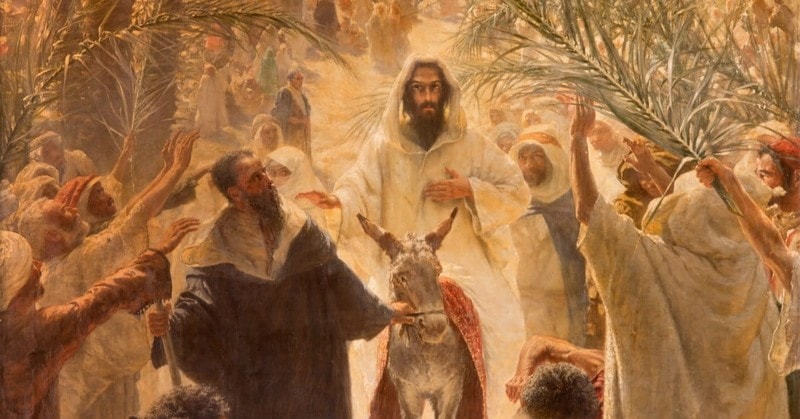
Palm Sunday is a Christian holiday that is the beginning of Holy Week, the most hallowed time of year for Christians. (The Orthodox Christian Church follows the Julian calendar and typically celebrates later than Catholic and Protestant communities.)
Palm Sunday commemorates when Jesus entered Jerusalem and was greeted by people waving palm leaves, hence the name. This event serves as a reminder for Christians to welcome Jesus into their hearts and be ready to follow Him. The Palm Sunday service also includes a reading of the Passion, which narrates the story of Jesus’ suffering and crucifixion.
This celebration celebrates Jesus’ triumphal entry into Jerusalem, mentioned in the four Gospels. Jesus entered the city knowing He would be tried and crucified and welcomed His fate to rise from the grave and save us from sin!
Good Friday – March / April
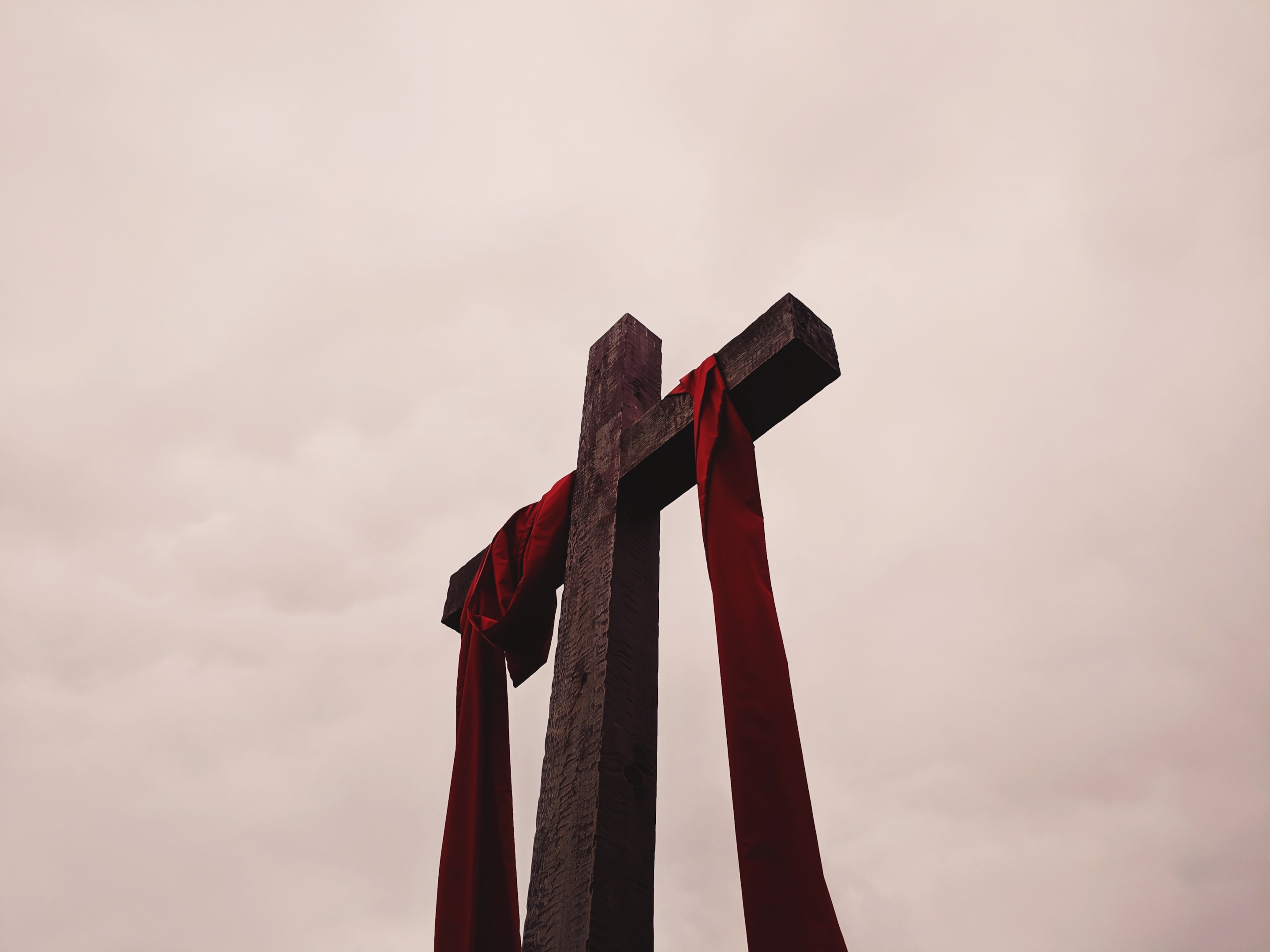
Good Friday is a day of sorrow and remembrance for Christians. It’s called Good Friday because, by Jesus’ death, he became the final, complete sacrifice for our sins. We couldn’t have erased our sins. Our hands would have been forever stained with every single sin for a lifetime. But Jesus broke the bonds of death and sin! Christians believe that Jesus’s death on the cross was the ultimate sacrifice for humanity’s sins, saving mankind from death.
For Christians, Good Friday is a crucial day of the year because it celebrates what we believe to be the most pivotal day in the history of the world! On Good Friday, Jesus willingly suffered and died by crucifixion as the ultimate sacrifice for our sins. Good Friday is recognized as a holiday by many Western countries, including 12 states in the U.S.
“This is love: not that we loved God, but that he loved us and sent his Son as an atoning sacrifice for our sins.” – 1 John 4:10
Advent Sunday – November / December

Four Sundays before Christmas marks Advent Sunday, which is considered the the beginning of the Advent season which lasts through Christmas.
Advent is a four-week season dedicated to reflective preparation for the arrival, “advent”, of Jesus Christ’s Nativity at Christmas time as well as Christ’s expected return in the Second Coming. During this important event on the church calendar, each week of Advent focuses on a different theme – hope, peace, joy, and love! Christians from all denominations and backgrounds celebrate Advent in different ways but all focus on the anticipation of waiting for the arrival of Jesus.
Advent symbolizes the church’s present situation in these “last days” (Acts 2:17, Hebrews 1:2) as God’s people wait for the return of Christ to consummate his eternal kingdom. The church is in a similar situation to Israel at the end of the Old Testament: in exile, waiting, hoping in prayerful expectation for the coming of the Messiah.
Israel looked back to God’s past merciful actions on their behalf in leading them out of Egypt in the Exodus, and on this basis, they called for God once again to act for them. In the same way, the church, during Advent, looks back upon Christ’s coming in celebration while at the same time looking forward in eager anticipation to the coming of Christ’s kingdom when he returns for his people.
Advent Calendar

The Advent calendar tradition dates back to the 1850s. The calendar typically includes 24 doors or boxes to open, one for every day in December leading up to Christmas Day. Advent calendars, which can take various forms, are used by many families and individuals as a daily countdown to Christmas, with the small doors or compartments that reveal a surprise or piece of chocolate each day, further building anticipation for the holiday. However, the Advent calendar has a much deeper purpose and significance than just a treat.
The Advent wreath first appeared in Germany around 1839. A Lutheran minister working at a mission for children created a wreath out of the wheel of a cart. He placed twenty small red candles and four large white candles inside the ring. The red candles were lit on weekdays, and the four white candles were lit on Sundays.
Advent readings are themed Scripture readings for each Sunday of Advent. In many churches and homes, a candle is lit on each Sunday while Scripture is read. The four weeks of Advent are broken down into the themes:
- First Week, Candle of Hope: Isaiah 9
- Second Week, Peace Candle: Isaiah 40
- Third Week, Joy (or Shepherd’s Candle): Matthew 2
- Fourth Week, Love Candle: John 3
Celebrating Holidays
There are holidays now for nearly every day such as “National Pancake Day” or “National Sibling Day”. People love to celebrate! As you can see above, many, if not all, major holidays are about celebrating Jesus and milestones in his life. We mark these days throughout the year and reflect on our faith.
The decision to celebrate each holiday is up to you and what the significance is to you. Let us know in the comments what your favorite holiday to celebrate is!

